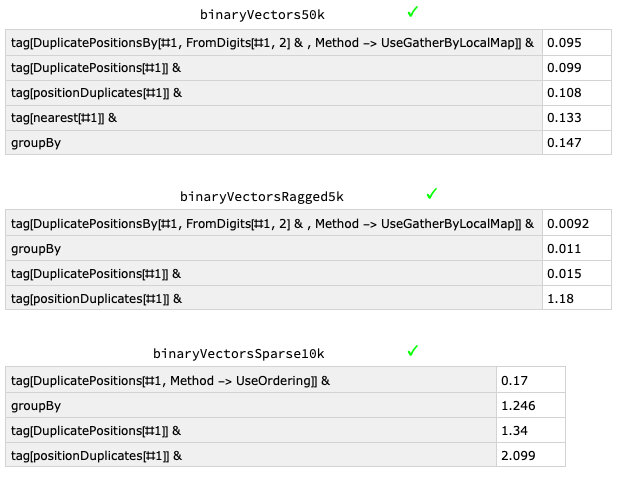Suppose I have the following matrix:
M =
{{0, 0, 0, 0, 0, 1, 0, 0, 0, 0, 0, 0, 0, 0, 0, 0},
{0, 0, 0, 0, 0, 0, 0, 0, 0, 0, 0, 1, 0, 0, 0, 0},
{0, 0, 0, 0, 0, 0, 0, 0, 0, 0, 0, 1, 0, 0, 0, 0},
{0, 0, 0, 0, 0, 0, 0, 0, 0, 0, 0, 1, 0, 0, 0, 0},
{0, 0, 0, 0, 1, 0, 0, 0, 1, 1, 1, 1, 0, 0, 0, 0},
{0, 0, 0, 0,1, 0, 0, 0, 1, 1, 1, 1, 0, 0, 0, 0},
{0, 0, 0, 0, 1, 0, 0, 0, 1, 1, 1, 1, 0, 0, 0, 0},
{0, 0, 0, 0, 0, 1, 0, 0, 0, 0, 0, 0, 0, 0, 0, 0}};
TableForm[M, TableHeadings -> {{S1, S2, S3, S4, S5, S6, S7, S8}}]
In this case, it turns out that rows (S1, S8), (S2, S3, S4), (S5, S6, S7) have equal element values in identical column positions. I have a 1000 x 1000 matrix to examine and would appreciate any assistance in coding this problem.



Values[PositionIndex[M]]$\endgroup$PositionIndexas possible solution. $\endgroup$